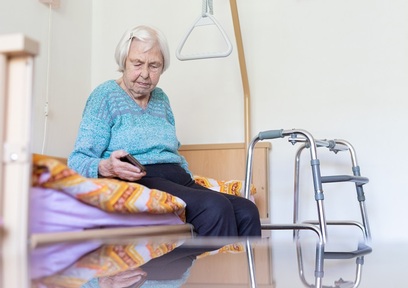Age UK calls for immediate social care funding with one in seven aged 65+ receiving less support
Age UK is calling for an immediate funding increase to support social care in the forthcoming Spending Review as new research reveals 210,000 people (15 per cent) over the age of 65 are receiving “less help than they did before the pandemic began”.

The research shows out of the 1.4 million (13 per cent) aged over 65 who were receiving care before the pandemic began, 112,000 people (eight per cent) are receiving less care, and 98,000 people (seven per cent) are no longer receiving any care.
For this research, Age UK used analysis of English Longitudinal Study of Ageing COVID-19 Substudy data, collected June and July 2020, using ONS mid-year population estimates for 2019.
Age UK say this worrying finding needs to be considered against a context in which out of the 2.7 million people aged 65+ in England who said they had care needs, a million (38 per cent) said these needs were not always being met.
’We are calling on Chancellor Sunak to invest several extra billion into social care right now’
Caroline Abrahams, charity director at Age UK said: “Unfortunately, our new findings show these key trends in social care are going in the wrong direction: our older population’s need for care will be increasing due to this health emergency.
“Without the support they need there’s a very real risk of older people experiencing falls they might otherwise have avoided, and of generally becoming more susceptible to illnesses of all kinds.
“The Treasury has the reputation for turning a deaf ear to every call to put more money into social care. This Spending Review is Chancellor Sunak’s opportunity to show he is bigger and better than that.
"We are calling on him to invest several extra billion into social care right now, and to give us all hope that later this year, the government really will issue a funded plan for transforming social care for the better, once and for all.”
Age UK looked into how COVID has impacted mobility and deconditioning
Age UK has also revealed people shut away at home for long periods during the pandemic is leaving significant numbers of older people with reduced mobility and experiencing deconditioning, a loss of physical capacity due to muscle weakness, as well as joint pain.
Ordinary activities, such as going upstairs or washing, become difficult, and people become reliant on walking aids to move short distances, which they used to manage with ease. Their physical exercise, support groups, or even day-to-day routines, have been disrupted.
On top of this, stress and anxiety caused by the pandemic has had a knock-on effect on their health.
Age UK recently carried out polling on how the pandemic is impacting on older people who need help with the ‘activities of daily living’, one of the principal ways in which the need for social care is judged.
The survey was conducted by Research Express Online Omnibus with 1,364 UK adults aged 60+ between 20 August - 3 September 2020 and shows:
• 33 per cent of older people who were already struggling to get up and down the stairs say this is now much more difficult or more difficult
• 39 per cent who already found it hard to walk short distances outside say this is much more difficult/ more difficult
• 40 per cent of people who already found it difficult to shower, wash, or have a bath say this is now much more difficult/ more difficult
• 43 per cent of people who already found it hard to clean/ tidy their house say this is now more difficult/ much more difficult.
Ms Abrahams said: “As a result, social care staff and the services they deliver are being stretched appallingly thin and, as ever, older and disabled people, and their families, are being left to pay the price.
“The government keeps saying it is committed to ‘fixing social care’ but every day it seems they announce new money for one highly deserving initiative or another – and care always misses out. If not now, when?”
Latest News
 29-Jul-24
Dementia Bus gives carehome.co.uk staff insight into life with dementia
29-Jul-24
Dementia Bus gives carehome.co.uk staff insight into life with dementia
 27-Jul-23
UK's top home care agencies in 2023 revealed
27-Jul-23
UK's top home care agencies in 2023 revealed
 30-Nov-22
A quarter of older people keep their falls secret from family
30-Nov-22
A quarter of older people keep their falls secret from family
 29-Nov-22
'Covid-19 has not gone away' say terminally ill
29-Nov-22
'Covid-19 has not gone away' say terminally ill
 28-Nov-22
IT consultant who received poor care opens 'compassionate' home care business
28-Nov-22
IT consultant who received poor care opens 'compassionate' home care business